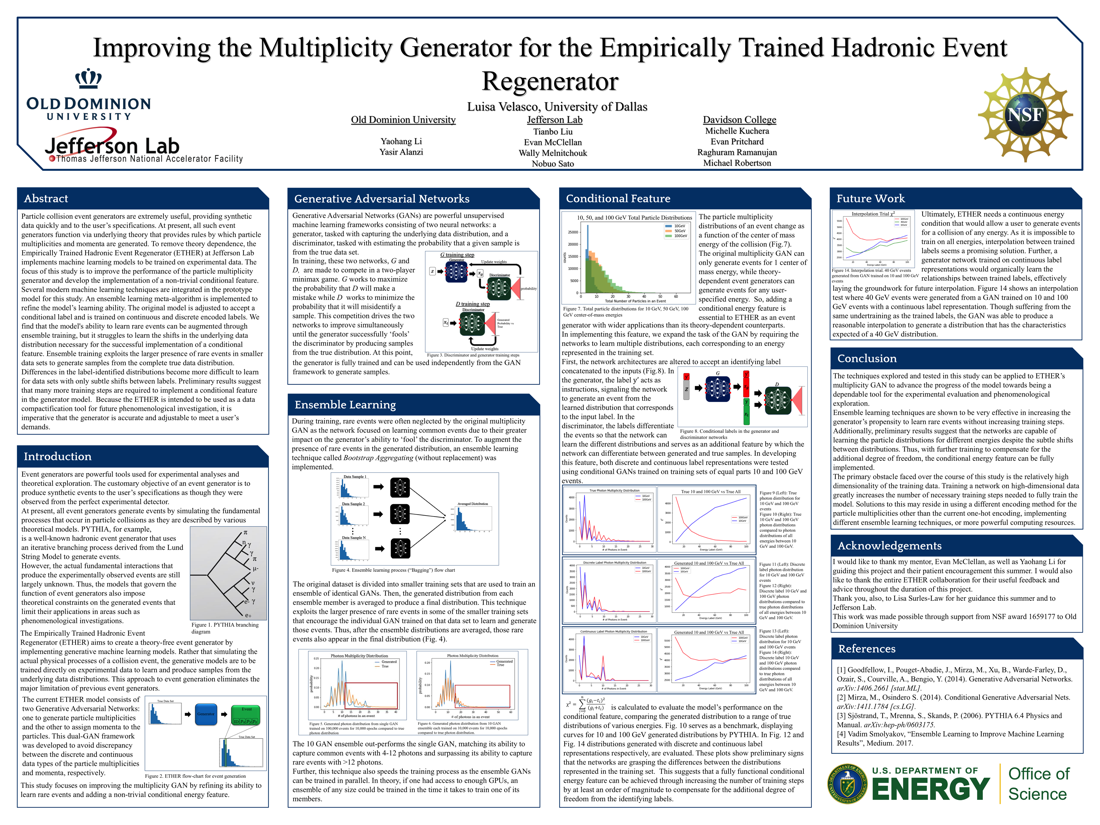Undergraduate Research at Jefferson Lab
Improving the Particle Multiplicity Generator for the Empirically Trained Hadronic Event Regenerator
Student: Luisa Velasco
School: University of Dallas
Mentored By: Evan McClellan
Particle collision event generators are extremely useful, providing synthetic data quickly and to the user's specifications. At present, all such event generators function via underlying theory that provides rules by which particle multiplicities and momenta are generated. To remove theory dependence, the Empirically Trained Hadronic Event Regenerator (ETHER) at Jefferson Lab implements machine learning models to be trained on experimental data. The focus of this study is to improve the performance of the particle multiplicity generator and develop the implementation of a non-trivial conditional feature. An ensemble learning meta-algorithm is implemented to refine the model's learning ability. The base model is altered to accept a conditional label and is trained on continuous and discrete encoded labels. We find that the model's ability to learn rare events can be augmented through ensemble training, but it struggles to learn the shifts in the underlying data distribution necessary for the successful implementation of a conditional feature. Preliminary results suggest that many more training steps are required to implement a conditional feature in the generator model.

Citation and linking information
For questions about this page, please contact Education Web Administrator.
